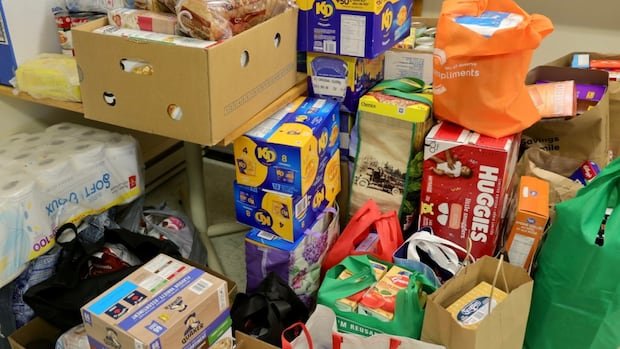A recent study conducted by researchers at Mount Saint Vincent University in Halifax has shed light on the challenges faced by 2SLGBTQ+ individuals in Nova Scotia regarding food insecurity. The study, which surveyed 11 self-identified 2SLGBTQ+ individuals in 2024, revealed that 10 of them experienced moderate to severe food insecurity over the past year. This insecurity led to reduced food quantity and quality, often resulting in skipped meals due to financial constraints.
Lead researcher Phillip Joy highlighted that the study participants hesitated to access food support services due to concerns about religious affiliations, data collection practices, and a perceived lack of awareness about 2SLGBTQ+ issues among staff and volunteers. Joy noted the limited resources available in Nova Scotia, particularly for the LGBTQ community, when it comes to addressing food insecurity.
Participants described concealing their gender or sexuality while seeking support services to avoid potential discrimination from food bank workers or volunteers. Yvren Mestres-Wyenberg, a transgender individual from Halifax, resonated with these findings, expressing discomfort accessing food banks in religious institutions due to fear of not being accepted.
Mount Saint Vincent professor Megan White, who assisted in the study, emphasized that certain risk factors unique to the 2SLGBTQ+ community contribute to a higher likelihood of facing food insecurity. These factors include experiences of discrimination, homophobia, and transphobia, as well as challenges in securing formal employment for openly LGBTQ individuals.
Regarding data collection practices at food support services, some participants expressed discomfort sharing personal information, fearing potential outing or privacy breaches. Sue Kelleher, director of innovation and learning at Feed Nova Scotia, mentioned ongoing efforts to enhance the accessibility and inclusivity of their services. Collaborative initiatives are being developed, including a queer-focused food access program in Halifax based on the study’s insights.
Mestres-Wyenberg expressed hope for positive changes that would improve access to essential services for those in need. They emphasized the simple desire for food due to hunger, underscoring the importance of addressing the barriers faced by the 2SLGBTQ+ community in Nova Scotia.

